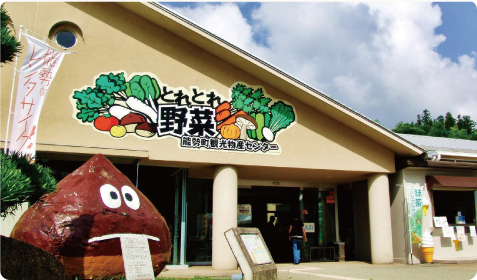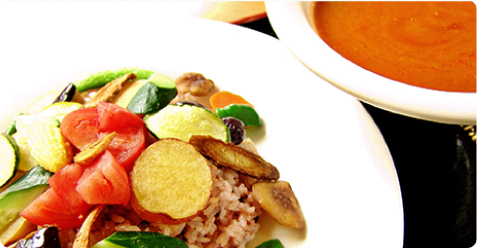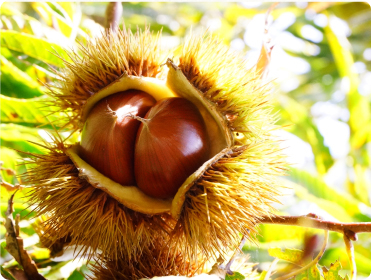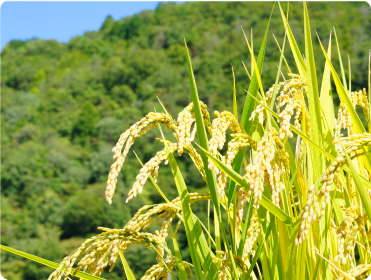Nose Town Tourism & Local Products Center/Roadside Station Nose “Kuri-no-sato (hometown of chestnuts)“ was established in 2000 as Nose's center for tourist information and the sale and promotion of local agricultural and industrial products. In the Center's direct sales corner, fresh vegetables grown by local farmers fill the stands every morning. Typical seasonal produce include bamboo shoots, butterburs and other edible wild plants in spring; tomatoes and corn that grow in generous sunlight in summer; gin-yose chestnuts and rice, which are Nose's signature produce, and black soybeans in autumn; Chinese cabbages and Japanese white radishes even in Nose's harsh cold winter. Every time you visit the direct sales corner selling a variety of produce in season, you will feel Nose at its seasonal best.

Inside the Center, the restaurant Hidamari serves popular dishes such as udon noodles and typical set meals, as well as original dishes with generous amounts of Nose-grown produce (for example, “Hidamari Gozen”) and dishes featuring local products in season available only during specific periods such as “Nose-nose Curry” and “Shishi nabe-teishoku” (set meal with boar meat in casserole). At the Tourist Information Counter, visitors can collect information on temples and shrines, cafes and other sightseeing spots in Nose Town, and receive services and assistance in facilitating their stroll in Nose, including bike rentals.

Recommended Products

Chestnuts
Nose is well known for chestnuts above all else. In fact, Nose is the natural home of the gin-yose variety of chestnuts, which is considered the “king” of chestnuts for its superb taste and shape. In autumn, large numbers of visitors come to Nose for this natural delicacy. The sales period lasts about two weeks, from late September to early October.
*A wide range of original processed foods made from or with Nose-grown chestnuts, including jam, distilled liquor, and cakes and pastries, are available as ideal gifts to take home.

Rice
Nose has always been an active rice producing area. The clean water and wide differences between daytime and nighttime temperatures, typical of a mountainous area, contribute to the cultivation of quality rice. For sale, rice is polished only after an order is received and to each customer's desired polishing degree so that rice can be enjoyed in the best possible condition. Naturally, unpolished rice (brown rice) is also available.